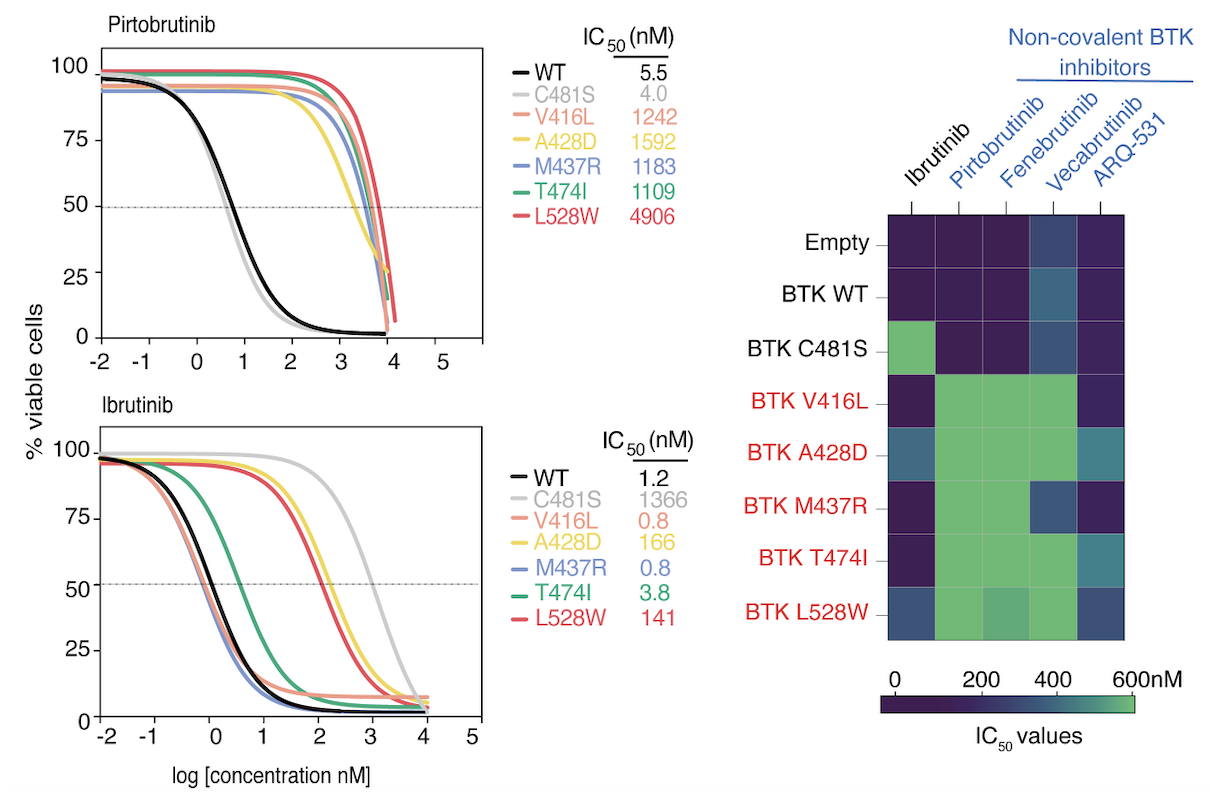The role of Bruton’s Tyrosine Kinase
Bruton’s Tyrosine Kinase (BTK) is a protein early in the B-cell receptor pathway. BTK is central for B-cell development, proliferation, and survival making it a strong therapeutic target. BTK-targeting drugs have transformed the therapeutic landscape for patients with chronic lymphocytic leukemia (CLL).
Determining resistance mechanisms of non-covalent BTK inhibitors
Our lab studies resistance mechanisms of these small molecule BTK inhibitors. We work to identify genetic and non-genetic causes of de novo and acquired resistance to non-covalent BTK inhibition.
We hypothesize that on-target mutations within BTK or the B-cell receptor signaling pathway (such as downstream PLCG2 mutations) will result in genetic resistance to non-covalent BTK inhibitors. At the same time, we also hypothesize that acquired, non-genetic mechanisms of resistance to non-covalent BTK inhibitors also exist and that through a combinatory drug approach that resistance can be overcome.



